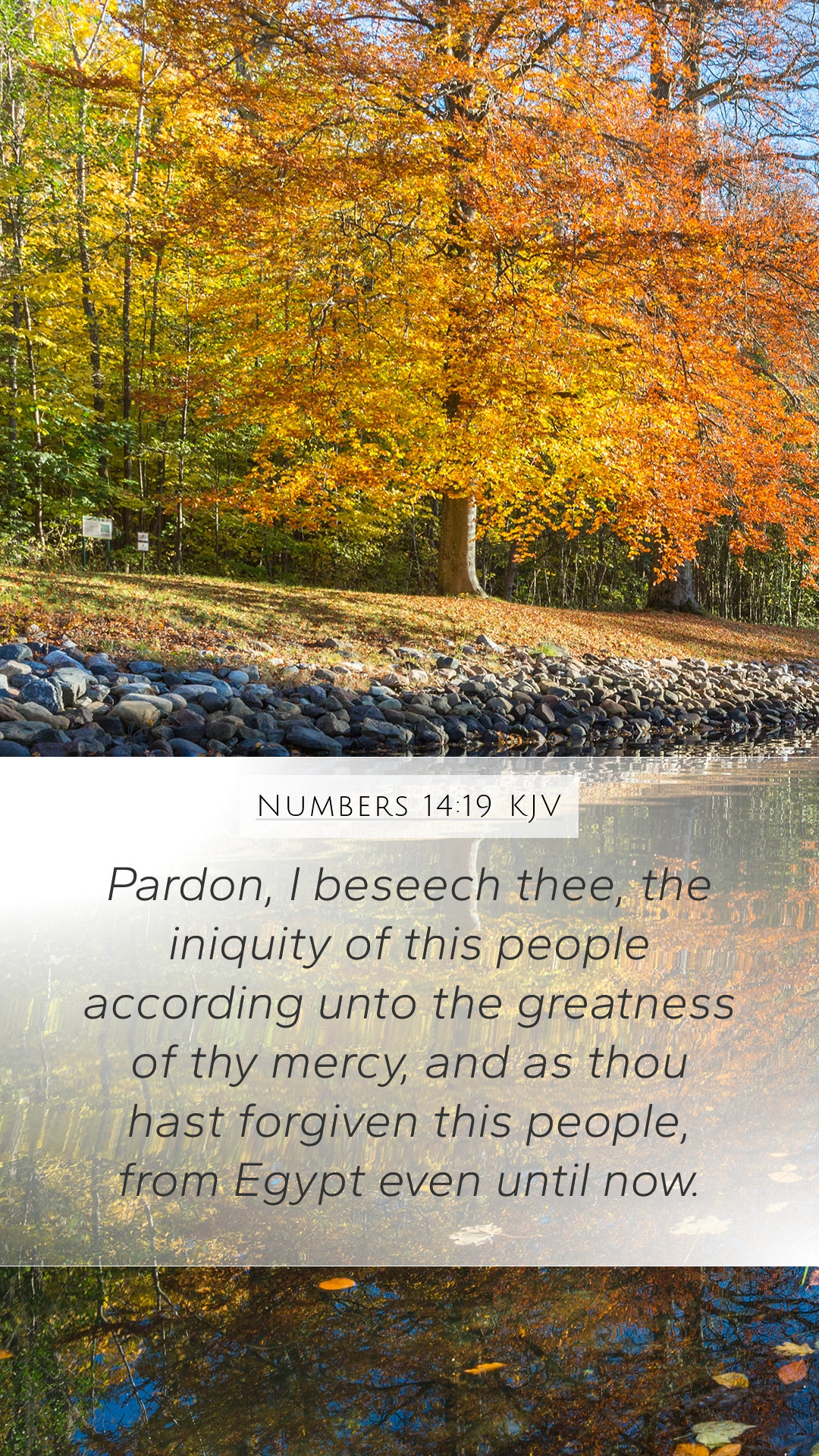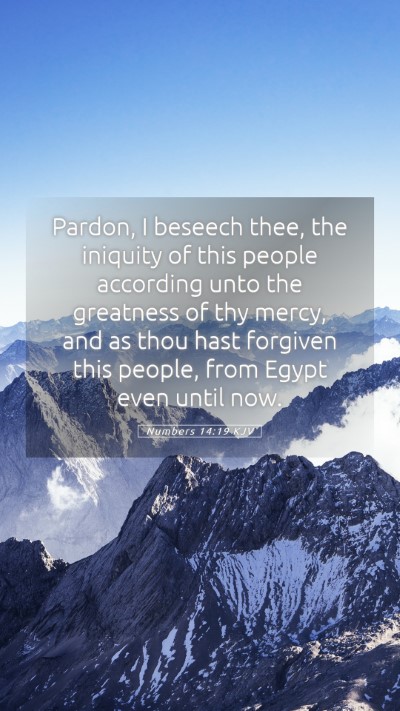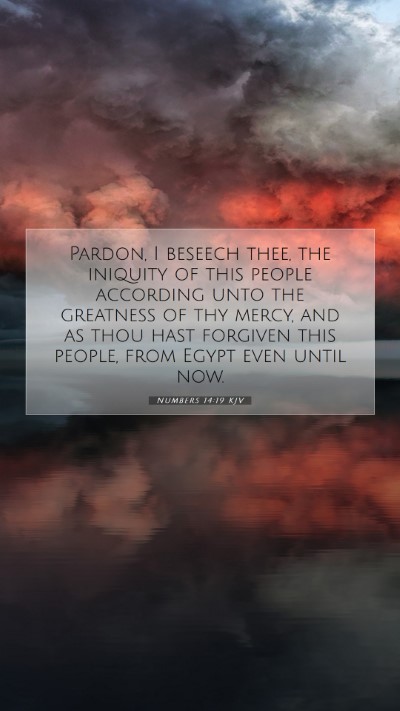Understanding Numbers 14:19
Bible Verse: Numbers 14:19
“Pardon, I pray, the iniquity of this people according unto the greatness of thy mercy, and as thou hast forgiven this people, from Egypt even until now.”
Overview
This verse captures a pivotal moment in the narrative of Israel's journey through the Wilderness. It reflects Moses' intercession on behalf of the Israelites, pleading for God’s mercy and forgiveness in the face of their rebellion. The verse emphasizes the themes of divine mercy, the seriousness of sin, and the relationship between God and His chosen people.
Insights from Commentaries
-
Matthew Henry:
Matthew Henry underscores the profound humility and earnestness of Moses’ appeal to God. He highlights that Moses recognizes the weight of the people's sin and their repeated pattern of disobedience since the Exodus. Yet, Moses appeals to the divine nature of God, specifically His mercy, reflecting a deep understanding of God's attributes. The commentary warns of the danger in presuming upon grace, yet it also illustrates the importance of advocacy in prayer.
-
Albert Barnes:
Barnes emphasizes the format of the prayer as a model for intercessory prayer. He notes that Moses seeks pardon not just for individual sins, but for the collective iniquity of the people. This reflects a principle that true leaders bear the weight of their people’s shortcomings. Barnes also draws attention to the historical context, marking God’s mercy in forgiving the Israelites numerous times throughout their journey.
-
Adam Clarke:
Clarke explores the theological implications of God's mercy and justice. He explains how Moses’ plea reinforces the concept that God, in His mercy, has the power to pardon the greatest sin if the heart is genuinely repentant. Clarke notes that Moses’ plea acknowledges the ‘greatness’ of God’s mercy, contrasting it with human failures. He also provides insights into the Hebrew words used, shedding light on the deep-seated meanings behind “pardon” and “iniquity.”
Biblical Themes
- Divine Mercy: The text reveals the unending mercy of God, who is willing to forgive His people despite their transgressions.
- Intercession: Moses serves as a mediator, which can be likened to Christ’s intercession for humanity.
- The Weight of Sin: The acknowledgment of iniquity shows the serious nature of sin and the need for forgiveness in the relationship with God.
- Faithfulness of God: This passage reassures believers of God’s faithfulness in maintaining a covenant relationship despite human failure.
Cross References
- Exodus 32:11-14 – Moses pleads with God to spare Israel from destruction.
- Psalms 103:10-14 – A reminder of God’s compassion and understanding toward us.
- Hebrews 4:16 – Encouragement to approach God’s throne of grace with confidence for mercy.
Application of Numbers 14:19
This verse can inspire deep 🥳 reflection on personal and communal sin, showing us how to approach God in prayer with the recognition of His mercy. As seen in Moses’ prayer; believers are encouraged to intercede for one another, seeking God’s forgiveness and mercy for themselves and their communities. The passage is also an invitation to contemplate how we can embody the principles of mercy and forgiveness in our daily interactions.
Conclusion
Numbers 14:19 provides profound insight into the nature of God’s mercy and the importance of intercessory prayer. Through the lenses of the commentaries by Matthew Henry, Albert Barnes, and Adam Clarke, we gain a deeper understanding of not just the historical context, but also the rich theological significance. Believers today are reminded that reflecting on biblical texts can lead to a greater understanding of God’s character and how we can grow in our own faith journeys.


